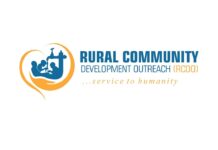The National Human Rights Commission (NHRC) has developed a short code (6472) to serve as easy access to the Commission and other relevant stakeholders on complaints on human rights violations, especially those bothering on Sexual and Gender-Based Violence (SGBV).
The Executive Secretary of the Commission, Tony Ojukwu (SAN) who made this discourse on Tuesday at the High-Level Multi-Agency Task Team (HiMAT) program for “assessing the extent of implementation of the VAPP Act at the headquarters of the NHRC Abuja stated that the access code will become operational from the 1st of April, 2022.
The NHRC Boss used the opportunity to commend the Office of the Vice President, the UNDP, and the Nigerian Communications Commission (NCC) for collaborating with the NHRC towards the realisation of the access code.
According to Ojukwu, the idea of developing the access code is to make it seamless for victims or would be victims of SGBV to quickly reach out to the NHRC by dialing the toll-free code in order to be linked with a particular agency of government or CSO whose mandate relates to the reported violation or abuse as the case may be.
The Chief Human Rights Officer in Nigeria told the participants that with the 36 state offices of the Commission working with other service providers, the new code will go a long way to harnesses SGBV complainants and ensure that they are tabled before the appropriate agencies or organisations for the necessary actions.
The Executive Secretary also recalled the several interventions by the Commission to stem the tide of SGBV and promote the implementation of the Violence Against Persons Prohibition (VAPP) Act, saying that that such efforts created avenues for awareness creation on the Act to the benefit of several people who were previously not aware of the existence of the legislation.
He stated that the Commission had in 2019 set up the Special Investigation Panel on Sexual and Gender Based Violence which he noted sat in the six geopolitical zones of the country, hearing petitions and empowering deserving persons, bearing in mind that most SGBV cases are rooted in poverty and unemployment.
Similarly, the National Agency for the Prohibition of Trafficking in Persons (NAPTIP) made a graphical presentation on the current realities on Sexual Offences in Nigeria, tagged “Update on Nigeria Sexual Offender Database: What has Changed in the Past Year.
The Director-General of NAPTIP, Professor Fatimah Waziri Azi who disclosed this at the event noted that at present, some states have been linked to Nigeria Sexual Offender Database just as she urged the remaining states to do the same.
The states are Edo, Ekiti, Adamawa, Kano, Kwara, and Delta, the Director-General stated.
In his PowerPoint presentation, an Assistant Director from NAPTIP, Mr. Titus Amariju corroborated the stance of the Direction General, saying that the aforesaid states have actually sent data from their respective states on Sexual Offences and that two more states, Kaduna and Cross Rivers have proposed to link up to the Nigeria Sexual Offender Database.
He expressed concerns that despite the fact that 25 states in Nigeria have adopted the VAPP Act, only a few have linked up to the Sexual Offender Database which he noted will provide the information needed to fast track the implementation of the Act.
Other stakeholders who made presentations at the occasion are the Federal Ministry of Women Affairs, Nigeria Correctional Service, Nigeria Security and Civil Defense Corps, the National Bureau of Statistics, and the National Identity Management Commission.
Others are the National Centre for Women Development, Economic and Financial Crimes Commission, Desk Officer, FCT Sexual and Gender-Based Violence Response Team (FCT-SGBVRT), and National Agency for the Prohibition of Trafficking in Persons.













































